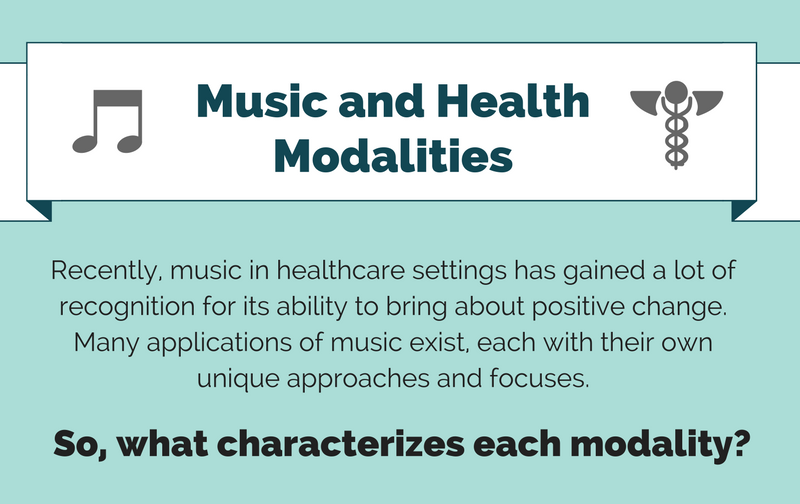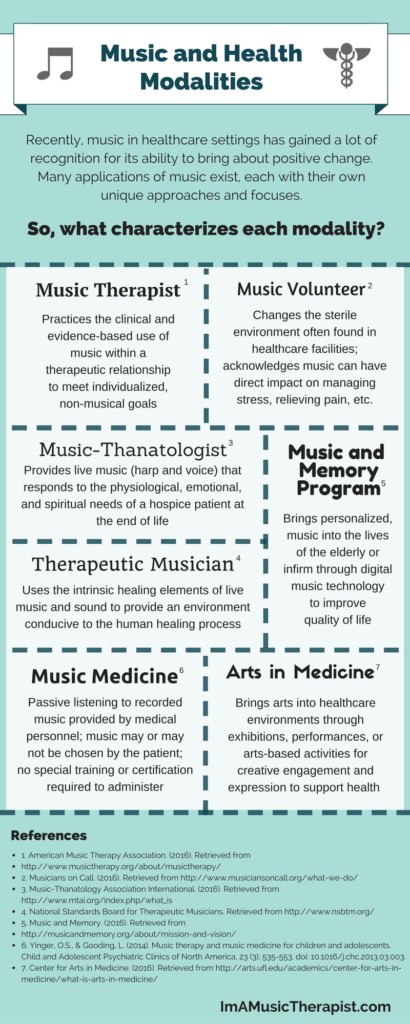What characterizes each music and health modality? (Infographic)

It’s been 9 years this semester since I started my undergrad studies in music therapy. Back then, when I told people I was majoring in music therapy, they usually asked one of three questions: 1) What is music therapy?, 2) Can you make money as a music therapist?, and 3) That’s great, but does music really help people?
With lots of advocacy work from the music therapy community and a focus on more holistic healthcare in the past few years, I’m glad to say that the third question is rarely asked anymore. People are not as skeptical that music can be an agent of positive change. This interest in music and healthcare has opened a lot of opportunities for music therapists and other music/health modalities alike. If you’re interested in learning more about how musicians, therapists, and programs are bringing music into medicine, check out the infographic below:

Page with Comments
Comments are closed.
Really love your website/blog! I’m also a board-certified music therapist and went back to school to pursue a master’s in social work. Still utilize my music therapy skills and experiences, however, in my practice as a social worker.
Hi there, thanks for reading! It’s great that you’re incorporating your music therapy skills to benefit your work in a different field. Keep up the good work :)